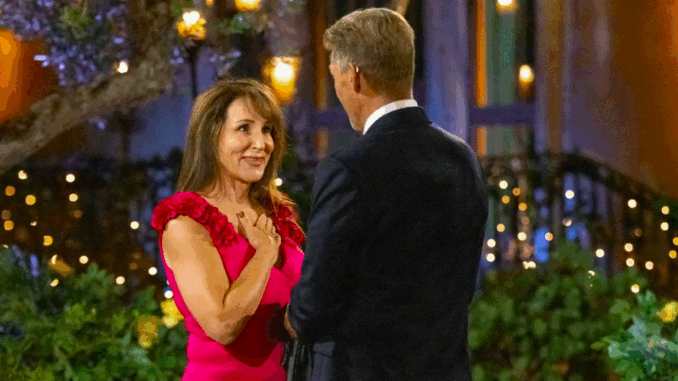
When The Golden Bachelor premiered, much of the media attention centered on Gerry Turner—a soft-spoken, endearing 72-year-old widower stepping back into the dating world. But by the end of the season, it was the women competing for his heart who had stolen America’s.
Leslie. Theresa. Faith. Susan. These weren’t just contestants. They were complex, confident, multi-dimensional women who offered something radical for reality television: a celebration of aging not as decline, but as transformation.
Aging in Prime Time
Mainstream media rarely gives airtime to older women—unless it’s to discuss health issues, caregiving, or loss. The Golden Bachelor flipped that narrative. These women were not just surviving their senior years—they were thriving. From Leslie Fhima’s salsa dancing and athleticism to Faith Martin’s soulful performances, they revealed the richness and vitality that comes with decades of experience.
Each episode offered glimpses into lives fully lived. Faith spoke of raising children and rediscovering herself through music. Theresa shared her journey through grief and renewal. Susan Noles brought comic timing and glamor in equal measure. They weren’t performing for camera time—they were existing, unapologetically.
The Power of Real Emotion
In most reality dating shows, tears often feel staged, timed perfectly to match dramatic soundtracks. But on The Golden Bachelor, the emotion hit differently.
When Faith wept during a heart-wrenching goodbye, or when Leslie stood on a cliff in Costa Rica, trying to process being left behind, there was no artifice. These were women with real heartbreak behind their eyes. They had lost partners to illness, endured years of solitude, and now risked vulnerability again—not for entertainment, but for possibility.
They weren’t here to “win.” They were here to feel.
A New Kind of Influence

After the show aired, the women quickly became internet darlings—not for TikTok dances, but for their honesty and dignity. Fans started following them for style tips, life advice, and quiet inspiration.
Susan Noles, the Philadelphia-based wedding officiant with a Marilyn Monroe vibe, went viral for her humor and authenticity. Joan Vassos, who left early to care for her family, received widespread praise for modeling a kind of strength rarely seen on TV.
The response made one thing clear: representation matters. Not just for younger audiences looking ahead, but for older women seeking visibility in a media landscape that often treats them as afterthoughts.
Building a Movement, Not Just a Show
ABC may have set out to revive a tired franchise. What they did instead was build a platform. A platform where women in their 60s and 70s could be radiant, flirty, complicated, sexy, sad, hopeful—and all of it without apology.
That impact is already reshaping the future of the franchise. The upcoming Golden Bachelorette, expected later in 2025, will for the first time put an older woman in the lead role—proof that viewers are hungry for stories that reflect a broader, more diverse emotional spectrum.
The Legacy These Women Leave
In a genre often mocked for its superficiality, the women of The Golden Bachelor brought wisdom, warmth, and soul. They challenged cultural norms about beauty, relevance, and the right to be desired at any age.
They didn’t just rewrite the rules of the show.
They rewrote what it means to be seen.